So, it's been quite some time since I've made any posts. Awhile ago I said I would make some comments about some of the growing pains of the fair trade movement.
In the last few years, as the fastest-growing niche in the coffee market has continued to expand, the ways that fair trade coffee products are available to consumers is diversifying. Fair trade coffee is not only available from Starbucks (just one blend called Cafe Estima) and Dunkin Donuts (its espresso beverages are made with fair trade beans) but also in the grocery aisle where you'll find a handful of fair trade coffees mixed in with the more conventional brands and blends. For instance, Target now has several fair trade coffees available from its Archer Farms brand. Millstone, owned by Procter & Gamble, sells a fair trade coffee rarely available at larger grocery chains and usually as long as customers have asked for fair trade. It's called Mountain Moonlight. You might also encounter a variety of coffees that appear to be somewhere in between fair trade and organic, like the shade grown and bird-friendly coffees sold by Seattle's Best and other brands. Then there's the boutique coffee places like Intelligentsia (now, having opted out of the fair trade certification regime, is marking many of its coffees "direct trade" having created its own label through a process they claim is better than fair trade but that does not include third-party verification). Beyond that, you also have the more politically oriented coffee or fringe retailers like Just Coffee or Cooperative Coffees that see themselves as more movement-based rather than market driven. These guys may not use the Transfair certification model (complaining that it's become too institutionalized) and they promote themselves as 100% fair trade as compared to the part-time or maybe they'd say half-assed fair traders like Starbucks and others.
All of this says that there's definitely a market for fair trade coffee and a growing one. But things are seeming a little out of whack; the movement is spliting and its getting harder for the consumer to know if a company's commitment to fair trade is authentic or just another aspect of the trend of the corporate greenwashing we see so much of these days. Depending on the way you look at it, fortunately or unfortunately, it is getting more and more popular for companies to want to promote or see themselves as socially responsible and environmentally sustainable. And the fair trade/green movement should receive a lot of credit for pushing things in this direction. But the public relations guise of fair trade assigned to a company like Philip Morris doesn't really cancel out the corporation's misdeeds and other dirty investments - just out of offering one fair trade blend among all of it other coffees and products. Let's be honest, doesn't it really mean that the company is extending its product line to make more of a profit from a new set of consumer preferences? If so, what about the fair traders who wish to see an economy as if people matter? Under what arrangements is it happening this way? Is it even happening? Well, I guess so. The more fair trade coffee being sold, no matter who is selling it, does mean, or theoretically should mean, that more producers are getting more decent and stable prices for their coffee. But it also seems to reveal that when you buy the Millstone brand you are affirming a market-based, consumer-driven arrangement that is more about making ethical consumers feel better about themselves than about making life marginally better for coffee producers. What are the implications of market-driven forms of social justice being played out through the now viable, somewhat mainstream approach of fair trade? What's that you say? I thought fair trade was supposed to be more concerned with the reality of the poor producer...?
Subscribe to:
Post Comments (Atom)
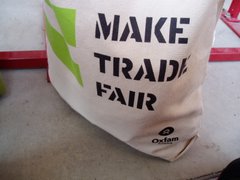

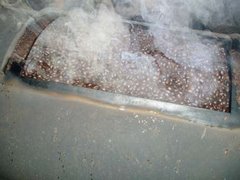
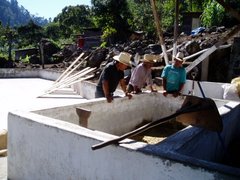
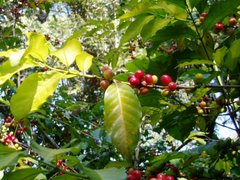
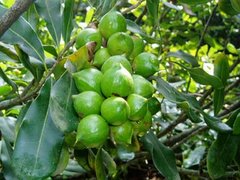
No comments:
Post a Comment